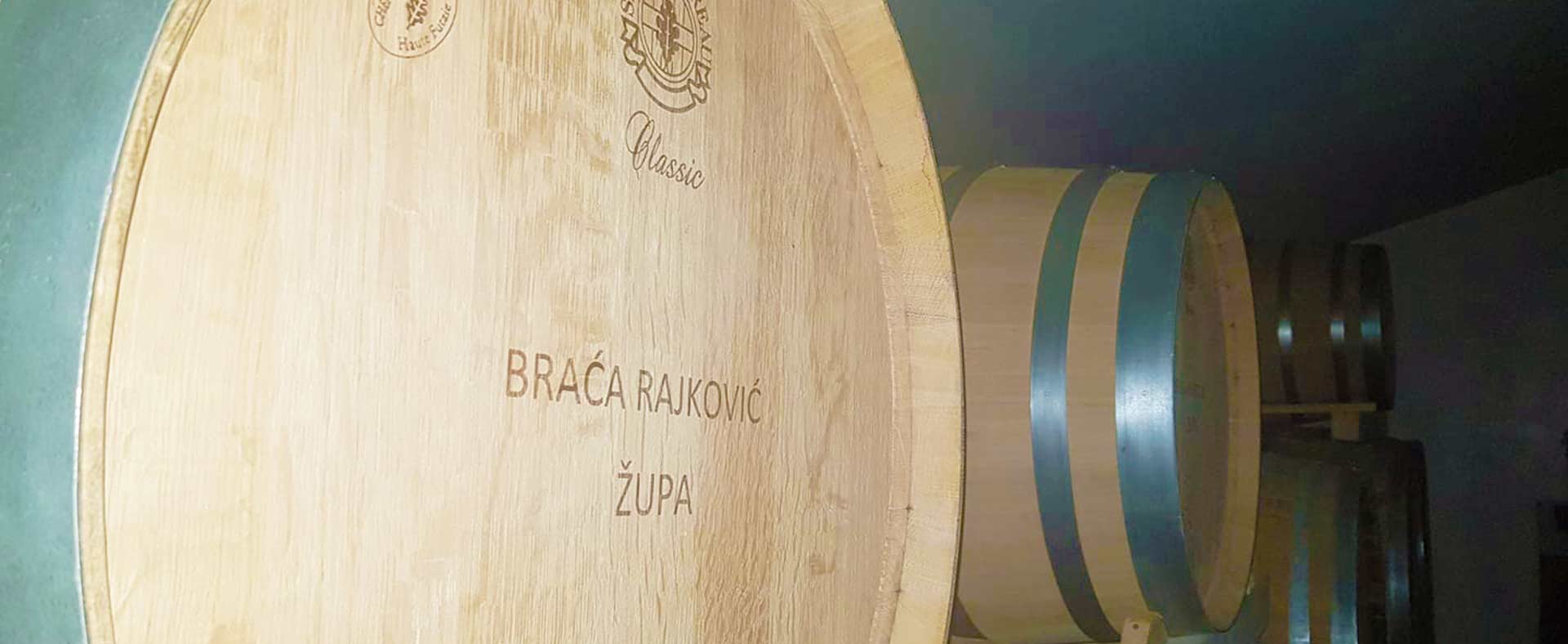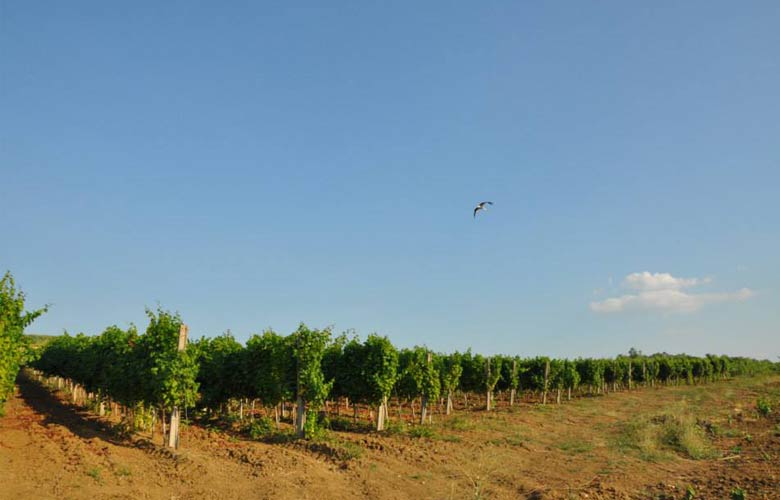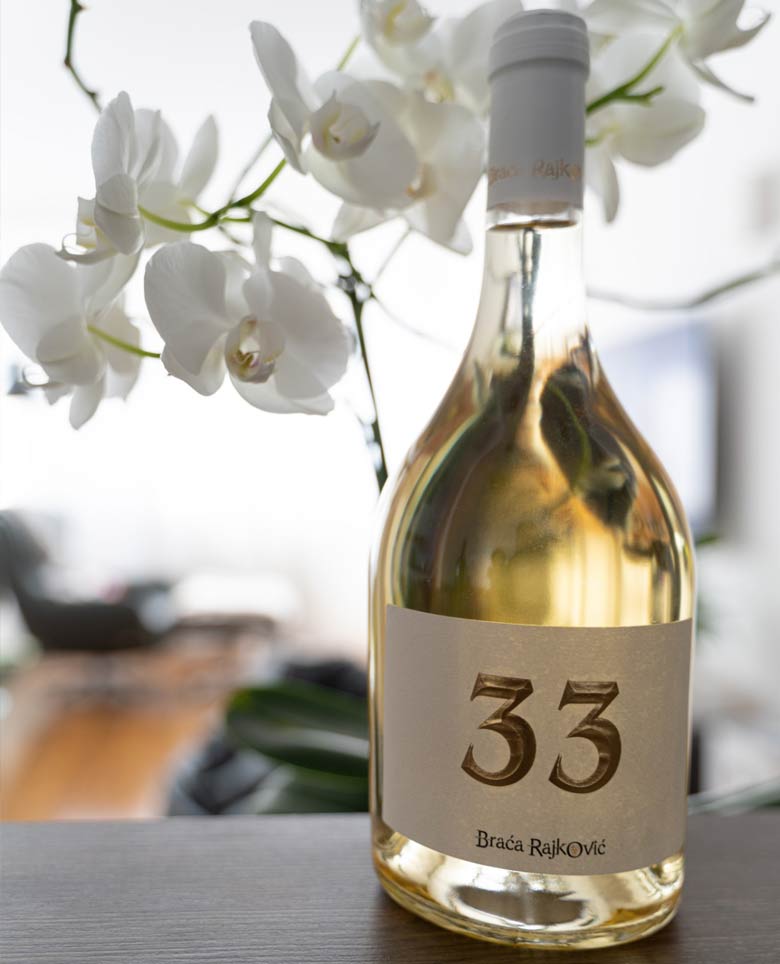
Tradition continues...
Come to Župa

W hen wine is mentioned in Serbia, one probably thinks of Župa first.
There, in the Župa valley at the foot of the stale Kopaonik, the Rajković family has been producing wine for centuries. All the troubles, wars, crises and difficulties did not deter the Rajković family from the vineyards, that is, from the "gidža" as they call the vines in Župa. Brothers Dragomir and Miodrag Rajković, after a decades-long break at the beginning of the 2000s, renewed the tradition of bottling wine under their own label. The most energy for this move was given to them by the look at the Praise Award of King Alexander I Karadjordjevic from 1933, awarded to their grandfather Miloš for the produced wine. Wine from the royal vine of Župa, prokupac. Although the people from Župa themselves do not call it that, for them it is "rskavac", an anachronistic name for a grape variety that, due to its hard skin, is crunchy under its teeth. That is exactly why the Rajković family named their wine from this variety - Prince. Royal wine from the royal Serbian grape variety, strong, rounded, ripe tannins, pleasant finish, with notes of smoke, plum jam, vanilla. And what a king he would be without his queen. The queen of Župa, under the label of Sofia tamjanika, elegant, fruity, fragrant, full of flavor with notes of mineral tones, makes a perfect companion to "rskavac", like a royal pair of Serbian wines. That the Rajković family realized that tradition alone is not enough for a wine to be good, is shown by the fact that Vladimir, the son of Miloš Rajković, planted the first plantation vineyard in Župa upon his return from viticulture studies.
Until then, vineyards in Župa were grown traditionally, as a century ago, while since 1962, thanks to Vladimir Rajović, the first modern plantation has sprouted in Župa, which, even after 60 years, brings top quality grapes of the Pinot Noir variety. Today, wine is produced from that vineyard under the Dina label.
Although faithful to tradition, the brothers Dragomir and Miodrag Rajković, guided by the idea that all wines must come from their own vineyards, plantations and vineyards of international varieties, and in addition to the oldest Pinot Noir plantation in Serbia, today in the vineyards can be found varieties such as Merlot, Cabertnet sauvignon , Cabernet franc, Shiraz, Malbec, Traminer, Vionier, but also Black variety od tamjanika and Morava.
And again a breath of tradition, as part of the eightieth anniversary of the Praise of King Alexander I Karadjordjevic, Rajkovic family produces a premium wine label under the brand "33". Red "33" is a blend of international varieties and "rskavac", a premium wine of Serbian winemaking that offers a combination of the Župa climate and new approaches in oenology. Wine of incredible strength, strong but rounded tannin structure, full taste of black currants, blackberries, coffee beans, oak and minerals. White "33" barrique tamjanika, something new and unusual, white wine that should be served only slightly chilled with mandatory decanting, when all the floral aromas of incense come to full expression, imbued with the scent of green grass, elderberry, apricots and tree bark. In a word, unusual.
Despite the commitment to produce wine from indigenous varieties, brothers Dragomir and Miodrag Rajković, wanting to explore the parish climate and the quality of grapes that Župa offers, also made wines from international varieties that you can see on the link Our wines. If you like wines from Serbian merlot, cabernet sauvignon, cabernet franc, viogner, traminer, or a range of sweet wines made from dried berries or overripe grapes, our wines are your right choice.
You can love wine as a drink even without knowing which country, region or winery it comes from. But to get a full impression of the intention and vision of the winemakers, you simply have to visit Župa, the valley with the most sunny hours in the continental Balkans. From the vineyards of Braća Rajković, you must look at the above-mentioned Kopaonik, which in summer brings cold nights that store tartaric acid in the grapes during the hot summer days, and allow the grapes to express their full potential. That is why the Rajković family have arranged a small tasting room, where you can taste what the climate and hardworking people can do in the winery itself.
People are passing, but the story of the best Serbian wines remains.

